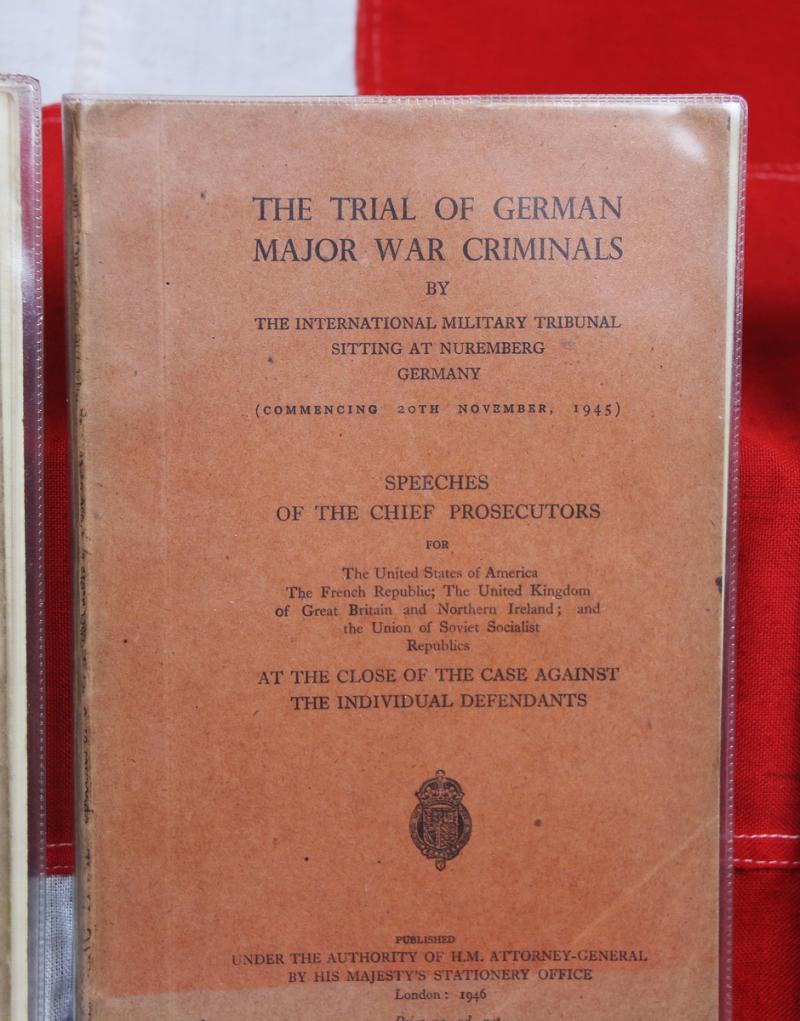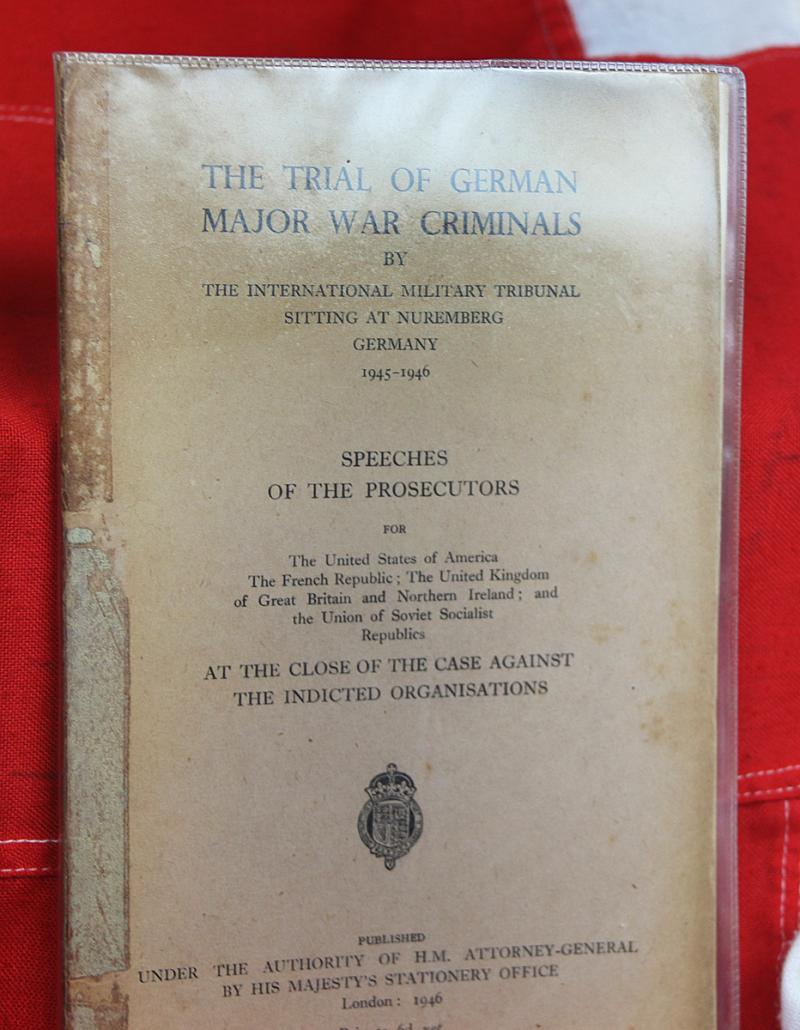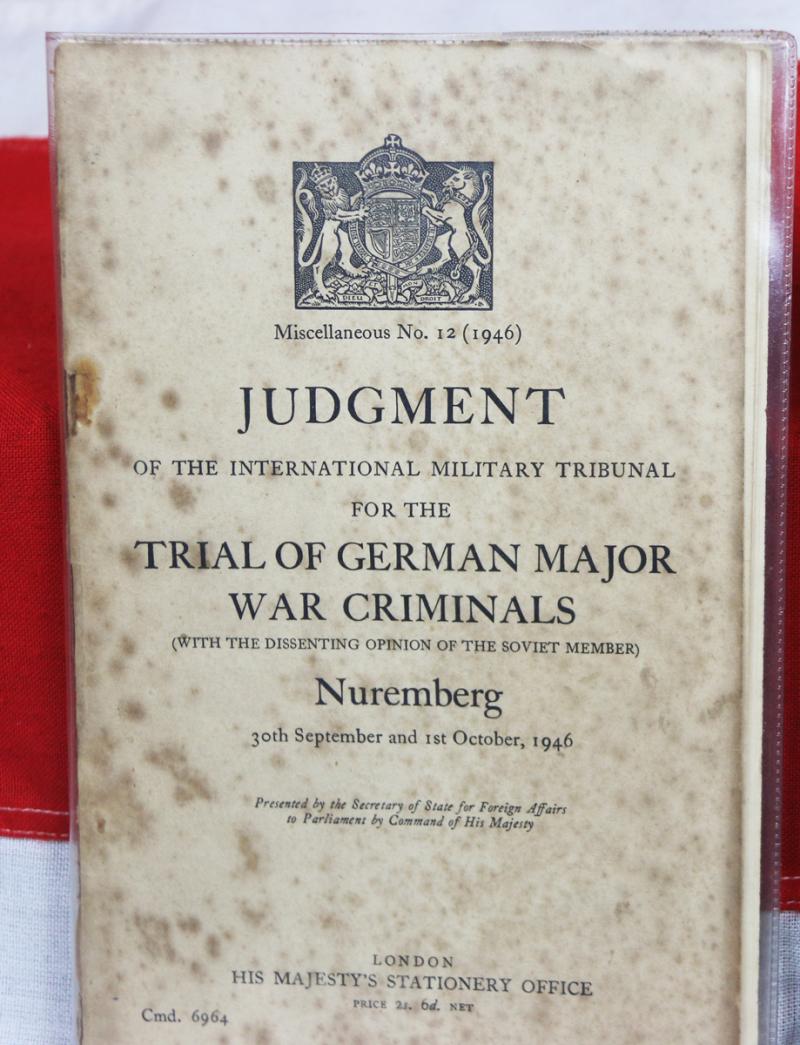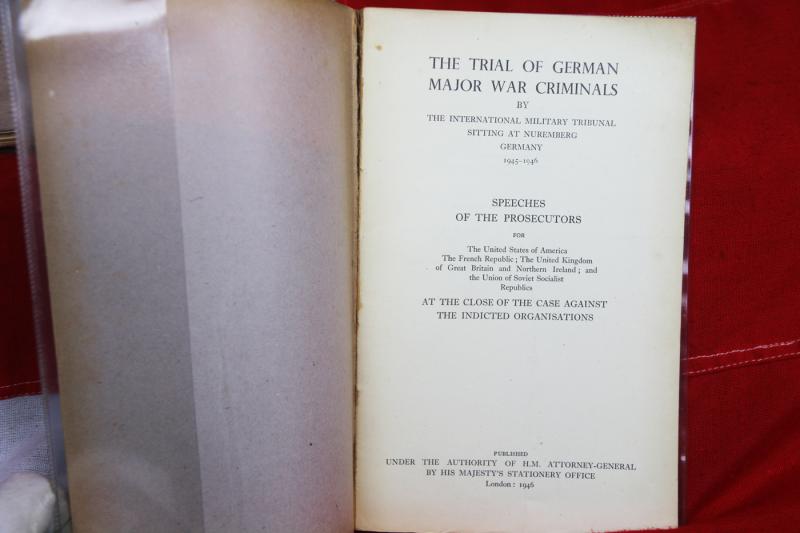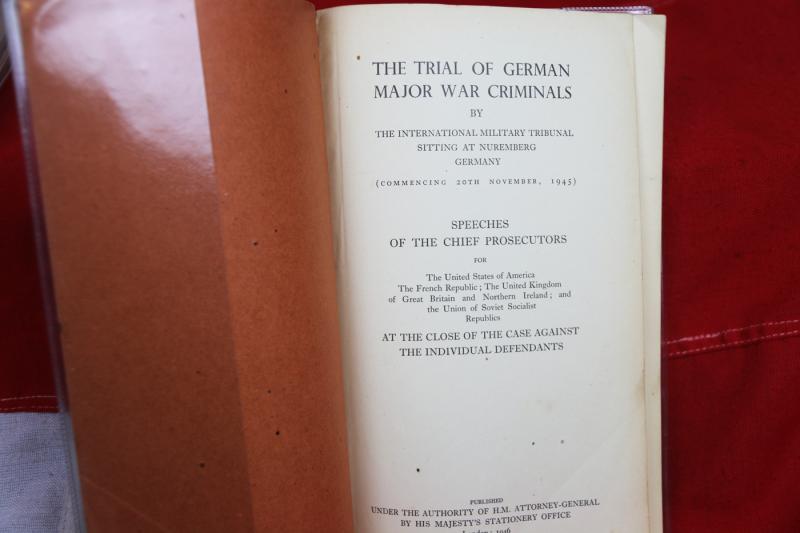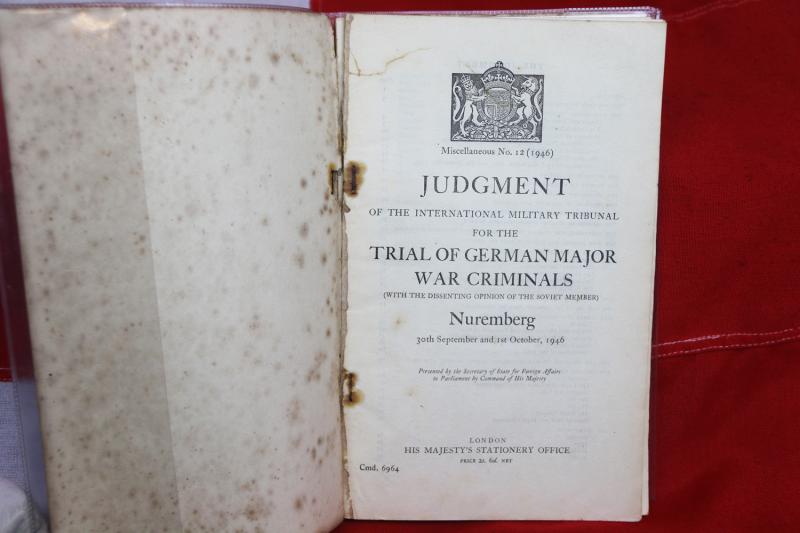Three Softback Books From the Nuremberg Trials 1946, Speeches of the Prosecutors, Speeches of the Chief Prosecutors & Judgment
Speeches of the Prosecutors {143 pages}
Speeches of the Chief Prosecutors {200 pages} &
Judgment {149 pages} of the International Military Tribunal for the Trial of German Major War Criminals (with the Dissenting Opinion of the Soviet Member)
Nuremberg 30th September and 1st October, 1946.
NUREMBERG TRIALS.
Published by London His Majesty's Stationary Office, 1946.
The Nuremberg trials were held by the Allies against representatives of the defeated Nazi Germany for plotting and carrying out invasions of other countries and atrocities against their citizens in World War II.
Between 1933 and 1945, Nazi Germany invaded many countries across Europe, inflicting 27 million deaths in the Soviet Union alone. Proposals for how to punish the defeated Nazi leaders ranged from a show trial (the Soviet Union) to summary executions (the United Kingdom). In mid-1945, France, the Soviet Union, the United Kingdom, and the United States agreed to convene a joint tribunal in Nuremberg, occupied Germany, with the Nuremberg Charter as its legal instrument. Between 20 November 1945 and 1 October 1946, the International Military Tribunal (IMT) tried 21 of the most important surviving leaders of Nazi Germany in the political, military, and economic spheres, as well as six German organizations. The purpose of the trial was not just to convict the defendants but also to assemble irrefutable evidence of Nazi crimes, offer a history lesson to the defeated Germans, and delegitimize the traditional German elite.
The IMT verdict followed the prosecution in declaring the crime of plotting and waging aggressive war "the supreme international crime" because "it contains within itself the accumulated evil of the whole". Most of the defendants were also charged with war crimes and crimes against humanity, and the systematic murder of millions of Jews in the Holocaust was significant to the trial. Twelve further trials were conducted by the United States against lower-level perpetrators, which focused more on the Holocaust. Controversial at the time for their retroactive criminalization of aggression, the trials' innovation of holding individuals responsible for violations of international law is considered "the true beginning of international criminal law"
Condition, average with foxing to 'Judgement' with the odd loose page.
Code: 25107


